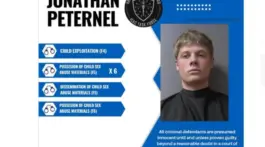(legal real-world practice notwithstanding)
As my multiple defamation suits enter their final phases, I’ve picked up a few items. Not from dusty law books, not from CLEs, and certainly not from listening to the defendants try to talk themselves out of trouble. No, the real lessons came from Star Wars and Star Trek. Turns out, the galaxy far, far away and the final frontier are excellent training grounds for surviving the courtroom wars of Indianapolis and Howard County.
The Star Wars Galaxy of Lies
Defamation is basically the Dark Side. You start with a whisper, it becomes a rumor, then a Facebook meme, and suddenly you’re Darth Vader swinging accusations like a red lightsaber. My defendants? Think Sith apprentices with Wi-Fi. They didn’t stumble into mistakes; they weaponized lies with Palpatine-level ambition.
And like the Jedi Council ignoring Anakin’s mood swings, too many people shrug and say, “It’s just politics.” Right. That’s how democracy gets Force-choked. Lies, once loose, are like TIE fighters: cheap, mass-produced, and built to swarm you until something blows up.
That’s why my lawsuits are lightsabers—elegant weapons for a more civilized age. They’re not toys. If you don’t know how to wield them, you lose an arm. But in the right hands, they slice clean through nonsense faster than Obi-Wan bisecting Darth Maul.
The Star Trek Manual of Procedure
Star Trek, on the other hand, is all about rules and structure. Starfleet has the Prime Directive. Lawyers have Trial Rule 56. Both say: respect the process, or chaos follows.
Summary judgment is my warp drive: engage it, and you jump ahead of the courtroom asteroid field straight to judgment day. Requests for Admissions? That’s my tricorder, scanning the other side and revealing whether they’re bluffing or just incompetent. When defendants blow deadlines? Cue Spock raising an eyebrow: “Highly illogical.” Translation: they’re toast.
Discovery? That’s the away mission. You beam down, not knowing whether you’re meeting peaceful Vulcans or cranky Klingons. You gather evidence, set your phasers to stun, and when opposing counsel tries to outmaneuver you, you go full Captain Kirk: change the rules mid-battle and watch them sputter.
What Both Universes Teach Me
Here’s the playbook I’ve picked up along the way:
-
Facts are the Force. Lies get clicks, but in defamation per se, facts are all you need. Damages are presumed. You show the lie, the galaxy shifts in your favor.
-
Procedure is the Starship. Miss a deadline, ignore a rule, and you’re not warping anywhere. You’re just stranded in the Neutral Zone waiting to be vaporized.
-
Snark is the Phaser. I can’t call names in pleadings (pesky Rules of Professional Conduct), but I can file motions so sharp the other side wishes they’d stayed home watching The Mandalorian. Snark doesn’t violate ethics—it just makes the record funnier to read.
The Closing Credits
Litigation isn’t glamorous. It’s not lightsabers flashing or starships soaring. It’s depositions, deadlines, and discovery disputes—the legal equivalent of a Deep Space Nine filler episode. But both Star Wars and Star Trek remind me of the same truth: fight smart, stick to the mission, and never underestimate persistence.
And here’s the final lesson: my reputation is my coin of the realm. It’s what I trade on in court, in politics, in teaching, in media, and in life. That’s why I fight so hard to protect it. Because whether you’re in a galaxy far, far away or boldly going where no one has gone before, one truth holds: the truth itself is always worth defending.











